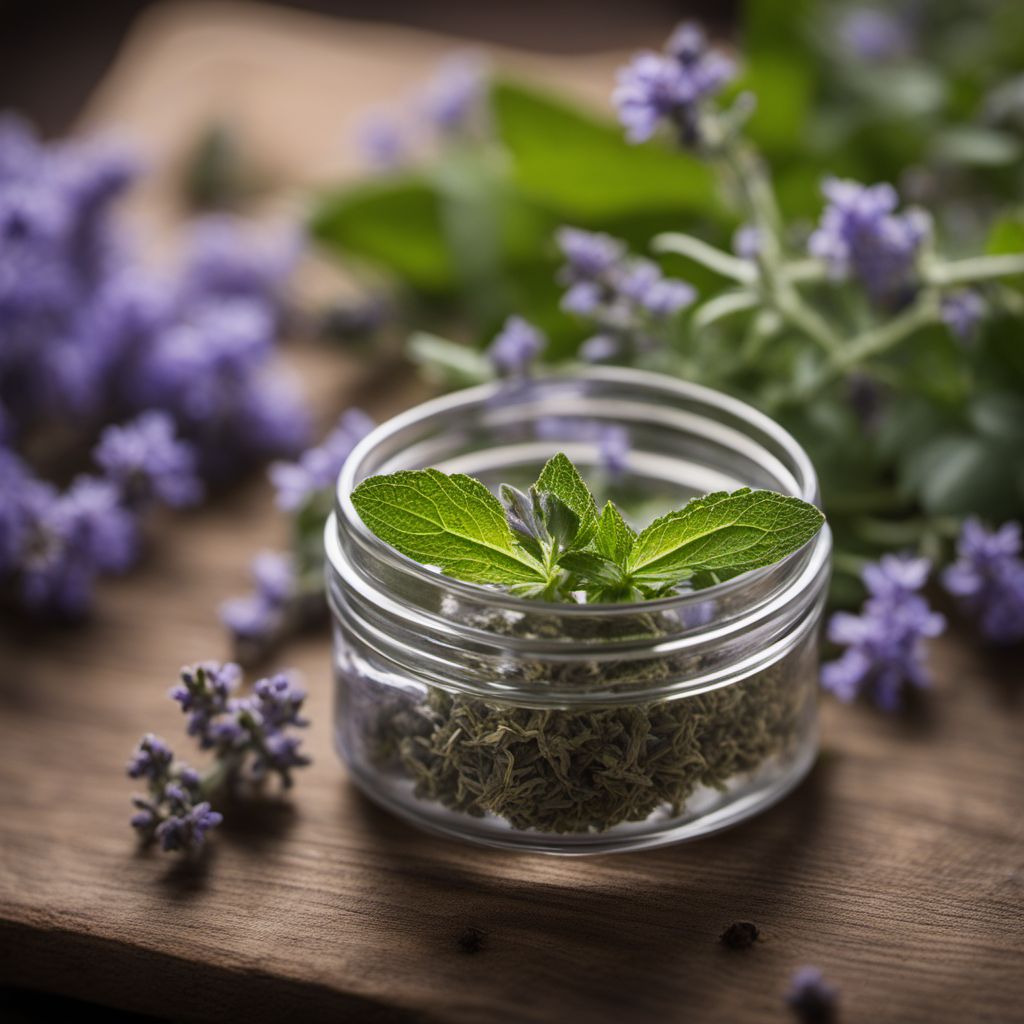
Ingredient
Catmint infusion leaves
The Soothing Herbal Elixir
Catmint infusion leaves have a distinct minty aroma and a slightly bitter taste. They are known for their calming and soothing properties, making them a popular choice for herbal teas and infusions. The leaves are typically dried and steeped in hot water to release their flavors and therapeutic compounds.
Origins and history
Catmint, or Nepeta cataria, is native to Europe and Asia but is now naturalized in many parts of the world. It has a long history of use in traditional medicine and herbal remedies. Catmint was traditionally used to treat digestive issues, headaches, and insomnia. It is also known for its attraction to cats, who are often drawn to the plant and its leaves.
Nutritional information
Catmint infusion leaves are low in calories and contain beneficial compounds such as vitamins, minerals, and antioxidants. They are known for their calming and relaxing properties, making them a popular choice for promoting sleep and reducing anxiety.
Allergens
Catmint infusion leaves may cause allergic reactions in some individuals, particularly those who are sensitive to plants in the mint family. It is advisable to consult with a healthcare professional before consuming catmint if you have any known allergies or medical conditions.
How to select
When selecting catmint infusion leaves, look for dried leaves that are green in color and have a strong minty aroma. Avoid leaves that are discolored or have a musty smell. It is best to purchase catmint from reputable sources that specialize in herbal teas and infusions.
Storage recommendations
To maintain the freshness and potency of catmint infusion leaves, store them in an airtight container in a cool, dark place. Avoid exposure to moisture, heat, and direct sunlight, as these can degrade the quality of the leaves. Proper storage will help preserve the flavor and therapeutic properties of the leaves.
How to produce
Catmint is a perennial herb that can be easily grown in home gardens. It thrives in well-drained soil and prefers full sun or partial shade. To produce catmint infusion leaves, plant catmint seeds or seedlings in a suitable location and provide regular watering and care. Harvest the leaves when they are fully grown and dry them for future use.
Preparation tips
To prepare a catmint infusion, place a teaspoon of dried catmint leaves in a cup and pour hot water over them. Let the leaves steep for 5-10 minutes, then strain and enjoy. Catmint infusion can be consumed hot or cold, and it can be sweetened with honey or lemon, if desired. It is also commonly used as an ingredient in herbal blends and tisanes.
Culinary uses
Catmint infusion leaves are primarily used to make herbal teas and infusions. They are known for their calming and relaxing properties and are often enjoyed as a natural remedy for promoting sleep and reducing anxiety. Catmint infusion can also be used as an ingredient in culinary recipes, such as herbal syrups, cocktails, and desserts.
Availability
Catmint infusion leaves are commonly available in health food stores, specialty tea shops, and online retailers that specialize in herbal teas and infusions.
More ingredients from this category » Browse all
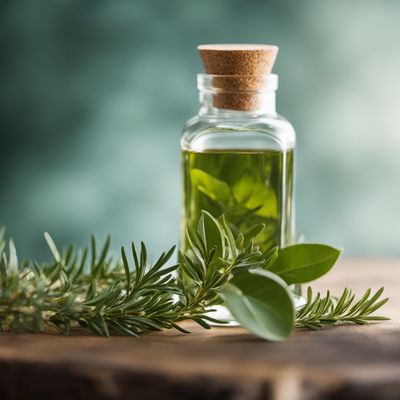
Tea tree infusion leaves
"The Healing Elixir: Unveiling the Power of Tea Tree Infusion Leaves"
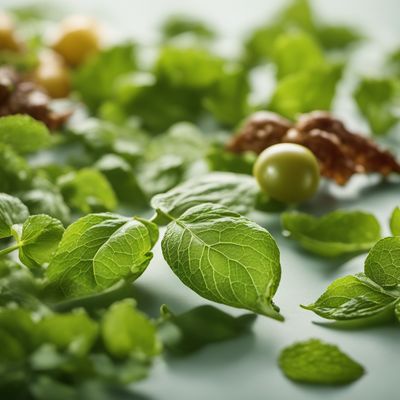
Muña infusion leaves
Andean Mint Delight

Chiretta infusion leaves
The Bitter Elixir: Unveiling the Power of Chiretta Infusion Leaves
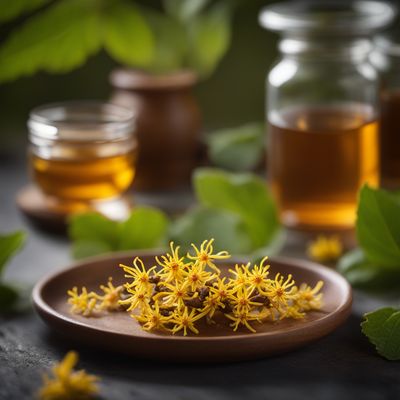
Witch hazel infusion leaves
The Natural Elixir: Unveiling the Power of Witch Hazel Infusion Leaves
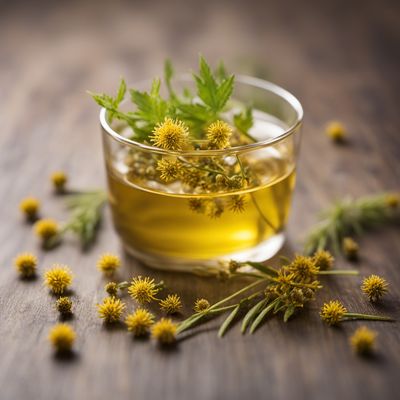
Agrimony infusion leaves
The Healing Power of Agrimony

Marshmallow infusion leaves
The Sweet Essence of Nature
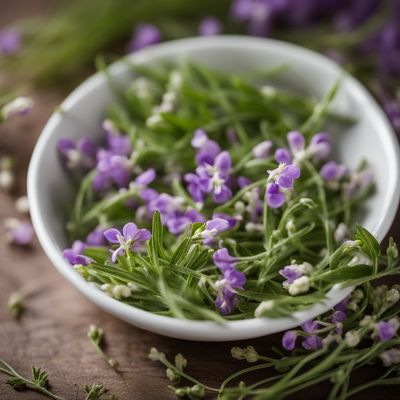
Toadflax infusion leaves
The Herbal Elixir of Toadflax

Centaury infusion leaves
The Healing Herb
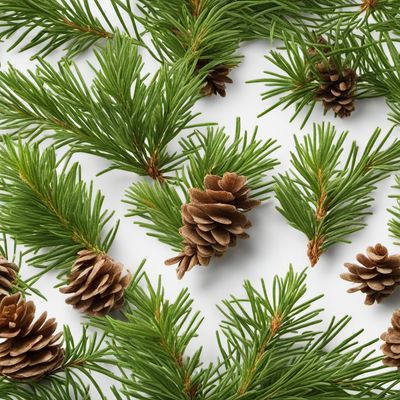
Norway spruce infusion leaves
The Forest's Elixir

Bearberry infusion leaves
The Healing Power of Bearberry
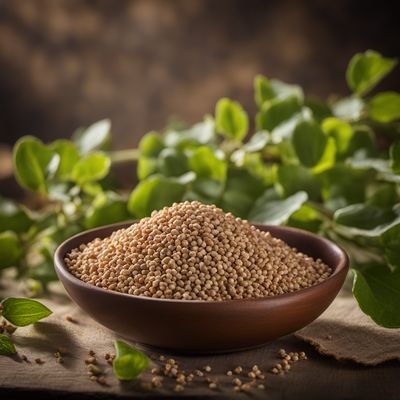
Buckwheat infusion leaves
Nutty Elixir

Herb bennet infusion leaves
The Herbal Elixir: Unveiling the Power of Herb Bennet